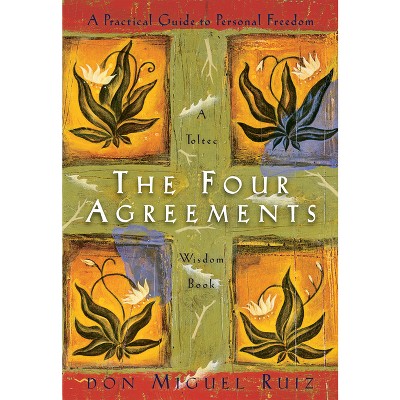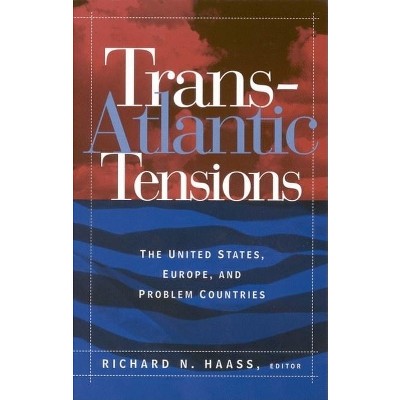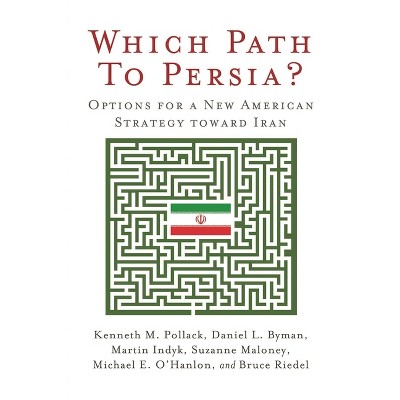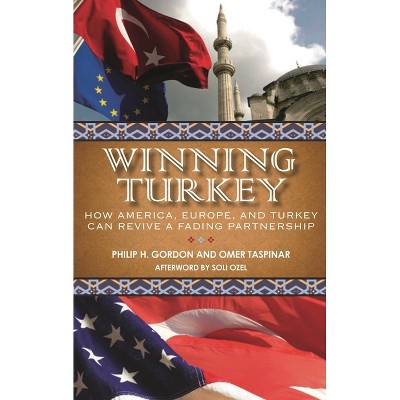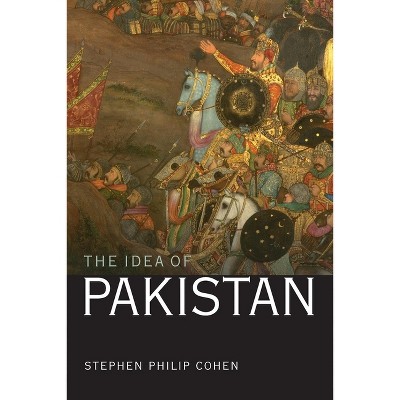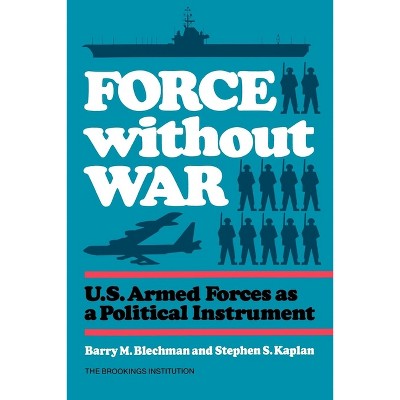About this item
Highlights
- It has been thirteen years since soldiers of the Chinese People's Liberation Army (PLA) raced into the center of Beijing, ordered to recover ""at any cost"" the city's most important landmark, Tiananmen Square, from student demonstrators.
- About the Author: Robert L. Suettinger is a nonresident senior fellow in the Foreign Policy Studies program and an affiliated fellow of the Center for Northeast Asian Policy Studies at the Brookings Institution.
- 556 Pages
- Political Science, International Relations
Description
About the Book
"It has been thirteen years since soldiers of the Chinese People's Liberation Army (PLA) raced into the center of Beijing, ordered to recover ""at any cost"" the city's most important landmark, Tiananmen Square, from student demonstrators. The U.S. and other Western countries recoiled in disgust after the horrific incident, and the relationship between the U.S. and China went from amity and strategic cooperation to hostility, distrust, and misunderstanding. Time has healed many of the wounds from those terrible days of June 1989, and bilateral strains have been eased in light of the countries' joint opposition to international terrorism. Yet China and U.S. remain locked in opposition, as strategic thinkers and military planners on both sides plot future conflict scenarios with the other side as principal enemy. Polls indicate that most Americans consider China an ""unfriendly"" country, and anti-American sentiment is growing in China. According to Robert Suettinger, the calamity in Tiananmen Square marked a critical turning point in U.S.-China affairs. In Beyond Tiananmen, Suettinger traces the turbulent bilateral relationship since that time, with a particular focus on the internal political factors that shaped it. Through a series of candid anecdotes and observations, Suettinger sheds light on the complex and confused decision-making process that affected relations between the U.S. and China between 1989 and the end of the Clinton presidency in 2000. By illuminating the way domestic political ideas, beliefs, and prejudices affect foreign policymaking, Suettinger reveals policy decisions as outcomes of complex processes, rather than the results of grand strategic trends. He also refutes the view that strategic confrontation between the superpowers is inevitable. Suettinger sees considerable opportunity for cooperation and improvement in what is likely to be the single most important bilateral relationship of the twenty-first century. He cautions, however"
Book Synopsis
It has been thirteen years since soldiers of the Chinese People's Liberation Army (PLA) raced into the center of Beijing, ordered to recover ""at any cost"" the city's most important landmark, Tiananmen Square, from student demonstrators. The U.S. and other Western countries recoiled in disgust after the horrific incident, and the relationship between the U.S. and China went from amity and strategic cooperation to hostility, distrust, and misunderstanding. Time has healed many of the wounds from those terrible days of June 1989, and bilateral strains have been eased in light of the countries' joint opposition to international terrorism. Yet China and U.S. remain locked in opposition, as strategic thinkers and military planners on both sides plot future conflict scenarios with the other side as principal enemy. Polls indicate that most Americans consider China an ""unfriendly"" country, and anti-American sentiment is growing in China. According to Robert Suettinger, the calamity in Tiananmen Square marked a critical turning point in U.S.-China affairs. In Beyond Tiananmen, Suettinger traces the turbulent bilateral relationship since that time, with a particular focus on the internal political factors that shaped it. Through a series of candid anecdotes and observations, Suettinger sheds light on the complex and confused decision-making process that affected relations between the U.S. and China between 1989 and the end of the Clinton presidency in 2000. By illuminating the way domestic political ideas, beliefs, and prejudices affect foreign policymaking, Suettinger reveals policy decisions as outcomes of complex processes, rather than the results of grand strategic trends. He also refutes the view that strategic confrontation between the superpowers is inevitable. Suettinger sees considerable opportunity for cooperation and improvement in what is likely to be the single most important bilateral relationship of the twenty-first century. He cautions, howeverReview Quotes
.".. provides an insider's account of the many ups and downs of Sino-American relations during that period.... This is a thoughtful and thought-provoking book that helps the reader put day-to-day events in context." --Frank Ching, "Far Eastern Economic Review", 10/23/2003
.".. the best account I have ever read of what American policy toward China looks like on a daily basis.... Suettinger has the requisite expertise, Chinese language skills, and government experience to give readers a straightforward, scrupulous, and frank account of a succession of crises in the first Bush and both Clinton administrations.... Should be a constant companion for those trying to understand the vexed and trying American relationship with China." --Bruce Cumings, University of Chicago, "Bulletin of the Atomic Scientists", 7/1/2004
"A fine addition to the important literature on the turbulent relationship between the US and China.... It offers a vivid picture of the interplay between foreign policy and domestic politics in the US." --X. Hu, Clemson University, "Choice", 3/1/2004
"A timely, welcome, and very highly recommended contribution to International Studies in general and U.S.-China relations during the final decade of the 20th Century in particular." -- "The Bookwatch", 11/1/2003
"Although accounts written by former officials always raise questions of balance and personal agendas, Suettinger gives his reader enough detail about the messy process of making and managing policy to set this book apart from its competitors." --Robert M. Hathaway, Woodrow Wilson International Center, "Foreign Affairs", 9/1/2003
"Most surprising, and most insightful, is Suettinger's insistence that the Tiananmen 'massacre' lies at the heart of the uneasy relations between the Chinese and the Americans." --Jonathan Mirsky, "The New York Review", 5/13/2004
"Suettinger provides valuable insight into China policy issues, policy debates and decision-making in this period. Furthermore, he provides an effective account of the relationship from the Chinese side groudned in Chinese language sources.... He lends important insight into the internecine conflicts with the Clinton administration over China." --Evelyn Goh, Nanyang Technological University, Singapore, "International Affairs", 1/1/2004
"This study will become a classic assessment of the delicate decade in Sino-American relations.... the author weaves a careful chronological narrative of a complicated period and draws out many previously unknown events.... the value of this book lies in its historical detail.... is probabley unsurpassed in what it contributes empirically to the historical record.... author deftly combines interviews with key participants (including his own first-hand recollections), government documents and press accounts.... Based on his careful ananlysis, Suettinger arrives at sober, but surprisingly pessimistic, conclussions about the US-China relationship." --David Shambaugh, George Washington University, "Pacific Affairs", 7/1/2004
"This well-written account is likely to remain for some time to come the definitive assessment of U.S.-China relations in the aftermath of the 1989 Tiananmen incident. Historians and other scholars will take many years to come up with data and insights to match Suettinger's richly nuanced review of American and Chinese policy making.... The author's first-hand experience, careful interviews, and balanced and detached treatment of issues and individuals provide greater depth and detail than earlier accounts. They greatly enrich our understanding of the factors at play in the various key decisions made by the U.S. policy makers in dealing with China during the tumultuous period." --Robert Sutter, Georgetown University, "Political Science Quarterly", 1/1/2004
"Although accounts written by former officials always raise questions of balance and personal agendas, Suettinger gives his reader enough detail about the messy process of making and managing policy to set this book apart from its competitors."
About the Author
Robert L. Suettinger is a nonresident senior fellow in the Foreign Policy Studies program and an affiliated fellow of the Center for Northeast Asian Policy Studies at the Brookings Institution. He served as national intelligence officer for East Asia on the National Intelligence Council; director of Asian affairs for the National Security Council (1994-97); and in several analytical positions with the U.S. Department of State. He is currently a consultant in the private sector.






